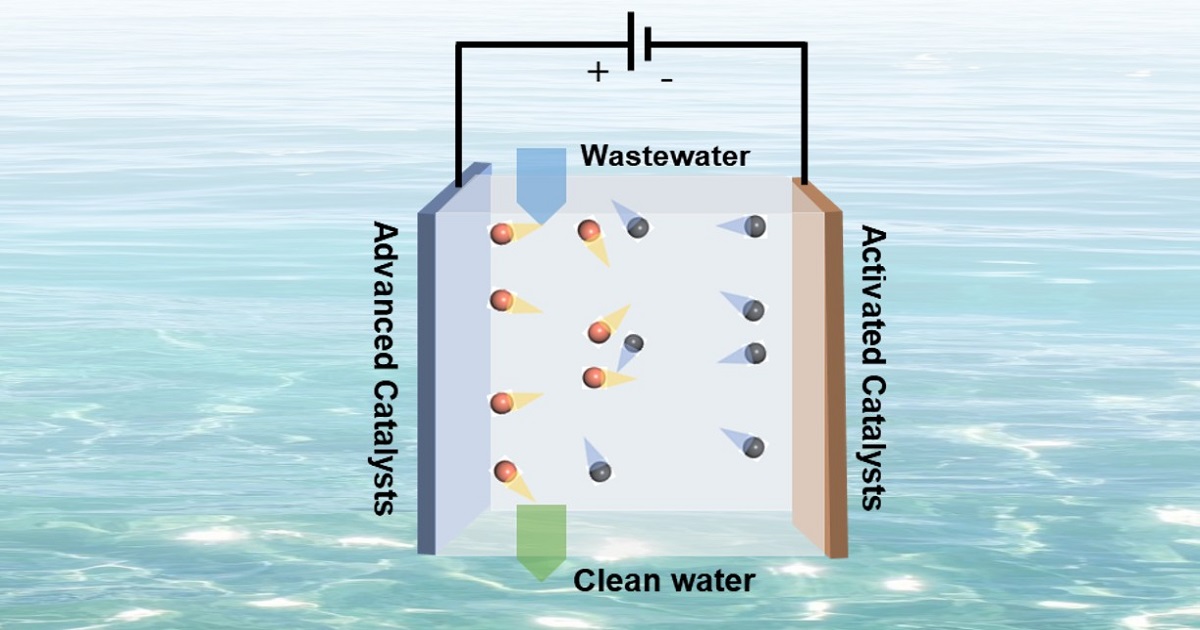- 4.0Impact Factor
- 7.6CiteScore
- 17 daysTime to First Decision
Advanced Catalysts for Wastewater Remediation Technologies
Special Issue Information
Dear Colleagues,
The urgent need of innovative solutions to water contamination demands, particularly in the removal of toxic heavy metals and recalcitrant pollutants, should be addressed for the development of a sustainable future. Advanced catalytic and hybrid technologies, such as transition metal catalysis, electrochemical reduction, photocatalysis, and bioelectrochemical systems, are revolutionizing wastewater remediation. These approaches synergize high efficiency, selectivity, and sustainability, enabling the precise targeting of contaminants like heavy metals through adsorption, membrane separation, and capacitive deionization.
Recent advances in electrochemical removal strategies, including redox-active catalysts and engineered nanomaterials, have enhanced degradation kinetics while minimizing energy consumption. Meanwhile, bioelectrochemical technology bridges catalysis and microbial processes, offering eco-friendly pathways for pollutant transformation. Similarly, photocatalytic methods have shown high potential for the efficient inactivation and removal of toxic compounds, leading to their mineralization. Despite progress, challenges persist in scaling these technologies, optimizing long-term stability, and integrating multifunctional systems for complex wastewater matrices.
This Topical Collection highlights breakthroughs in catalyst/photocatalyst design, mechanistic studies, and scalable applications across pollutant removal, electrochemical reduction, and hybrid processes. We welcome research on novel materials (e.g., transition metal-based frameworks), advanced characterization techniques, and techno-economic analyses to bridge laboratory innovation and industrial deployment. Contributions addressing membrane separation selectivity, capacitive deionization efficiency, or interdisciplinary approaches are particularly encouraged.
By fostering dialogue among chemists, engineers, and environmental scientists, this issue aims to accelerate the development of sustainable, next-generation remediation technologies.
Dr. Meng Li
Prof. Dr. Hongguo Zhang
Prof. Dr. Ewa Kowalska
Collection Editors
Manuscript Submission Information
Manuscripts should be submitted online at www.mdpi.com by registering and logging in to this website. Once you are registered, click here to go to the submission form. Manuscripts can be submitted until the deadline. All submissions that pass pre-check are peer-reviewed. Accepted papers will be published continuously in the journal (as soon as accepted) and will be listed together on the special issue website. Research articles, review articles as well as short communications are invited. For planned papers, a title and short abstract (about 100 words) can be sent to the Editorial Office for announcement on this website.
Submitted manuscripts should not have been published previously, nor be under consideration for publication elsewhere (except conference proceedings papers). All manuscripts are thoroughly refereed through a single-blind peer-review process. A guide for authors and other relevant information for submission of manuscripts is available on the Instructions for Authors page. Catalysts is an international peer-reviewed open access monthly journal published by MDPI.
Please visit the Instructions for Authors page before submitting a manuscript. The Article Processing Charge (APC) for publication in this open access journal is 2200 CHF (Swiss Francs). Submitted papers should be well formatted and use good English. Authors may use MDPI's English editing service prior to publication or during author revisions.
Keywords
- heavy metal removal
- electrochemical removal
- adsorption
- capacitive deionization
- bioelectrochemical technology
- electrochemical reduction
- membrane separation
- photocatalysis

Benefits of Publishing in a Special Issue
- Ease of navigation: Grouping papers by topic helps scholars navigate broad scope journals more efficiently.
- Greater discoverability: Special Issues support the reach and impact of scientific research. Articles in Special Issues are more discoverable and cited more frequently.
- Expansion of research network: Special Issues facilitate connections among authors, fostering scientific collaborations.
- External promotion: Articles in Special Issues are often promoted through the journal's social media, increasing their visibility.
- e-Book format: Special Issues with more than 10 articles can be published as dedicated e-books, ensuring wide and rapid dissemination.
Related Special Issues
- Advanced Oxidation CatalystsinCatalysts (18 articles)

